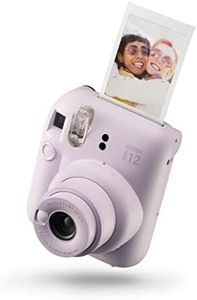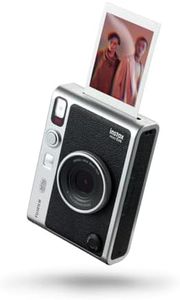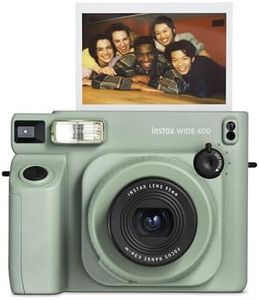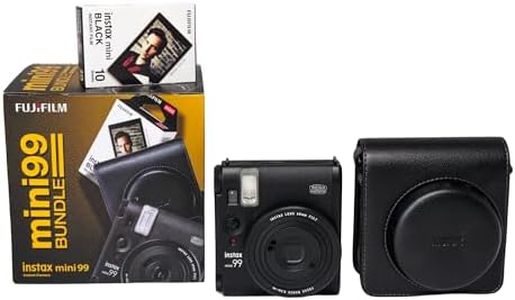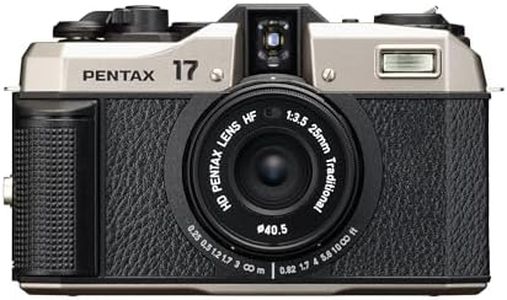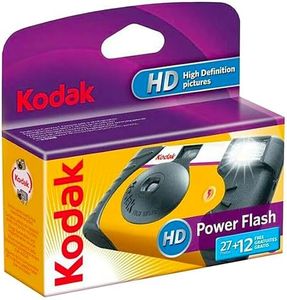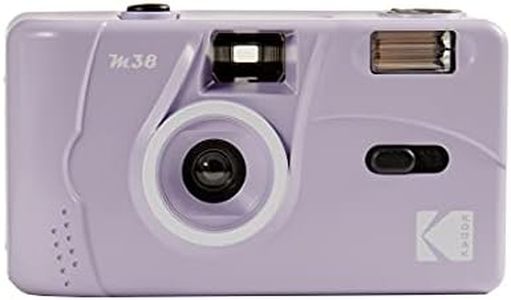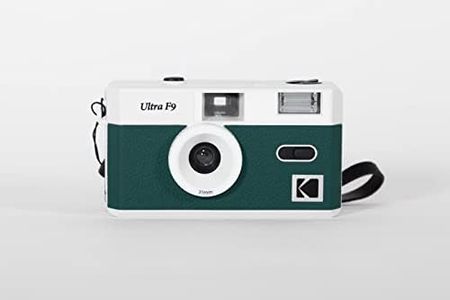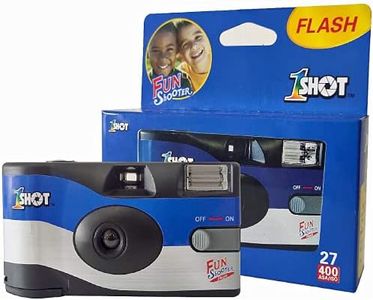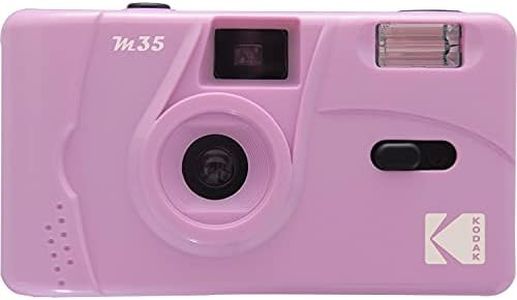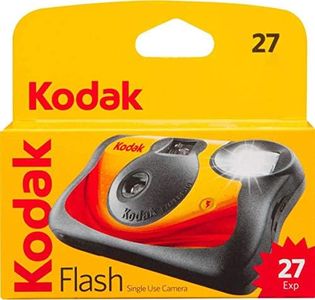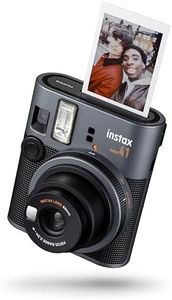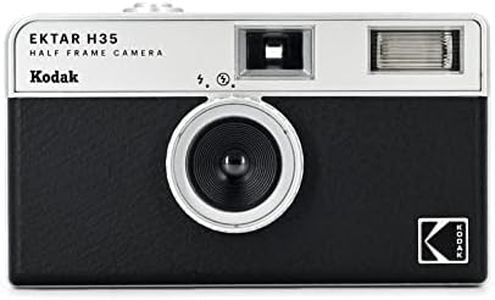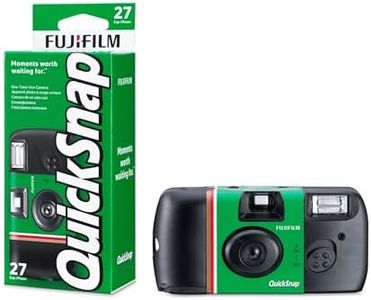We Use CookiesWe use cookies to enhance the security, performance,
functionality and for analytical and promotional activities. By continuing to browse this site you
are agreeing to our privacy policy
10 Best Film Cameras For Beginners
From leading brands and best sellers available on the web.Buying Guide for the Best Film Cameras For Beginners
Getting into film photography as a beginner is a wonderful way to learn the basics of photography while enjoying the tactile experience of analog cameras. When choosing your first film camera, focus on ease of use, reliability, and learning potential rather than chasing advanced features. Think about how hands-on you want the process to be—whether you prefer having control over settings or want a camera that does most of the work for you. Understanding the main specifications will help you select a camera that matches your learning style and photographic interests.Camera Type (Point-and-Shoot vs. SLR vs. Rangefinder)The type of film camera determines how much control and involvement you’ll have when shooting. Point-and-shoot cameras handle focus and exposure automatically, making them excellent for true beginners who want quick, simple snapshots. SLR (Single Lens Reflex) cameras give you manual control over focus, exposure, and lens choices, making them ideal for those who want to learn photography fundamentals. Rangefinder cameras are less common, usually requiring manual operation, and are best for those interested in learning specific techniques. Choosing the right type depends on whether you want convenience or hands-on learning.
Film Format (35mm vs. Medium Format)Film format refers to the size of the film the camera uses. Most beginners start with 35mm film because it's the most widely available, affordable, and easiest to develop. Medium format film offers higher image quality and larger negatives but is more expensive and less convenient to find or use. For starting out, 35mm cameras are typically the best choice, but you might consider medium format later as you become more experienced.
Manual vs. Automatic ControlsManual controls let you set things like shutter speed, aperture (how much light comes in), and focus yourself, giving you creative control over every shot. Automatic controls handle these settings for you, which is helpful if you’re just starting out or want an easier shooting experience. Some cameras offer both modes, letting you grow as a photographer. Think about whether you want to learn the technical side of photography or just enjoy capturing moments without too much setup.
Lens System (Fixed Lens vs. Interchangeable Lenses)A fixed lens is attached to the camera and can't be changed; these are simple to use and often found on beginner-friendly cameras. Interchangeable lens systems let you swap lenses for different styles of photography, opening up more creative options. If you’re just getting started, a fixed-lens camera might be less intimidating. If you want to experiment with wide, zoom, or macro photography, consider a camera with interchangeable lenses.
Built-in Light MeterA built-in light meter helps you set the right exposure, ensuring your photos aren’t too dark or too bright. Cameras with a built-in light meter are especially helpful for beginners, as they take the guesswork out of manual settings. Some older cameras lack this feature, requiring you to use a separate meter or guess exposures. For most new photographers, a working built-in light meter makes the learning process smoother and increases your chances of good results.
Viewfinder Type and SizeThe viewfinder is where you look to compose your shot. Some viewfinders are larger and brighter, making it easier to see and focus, while others might be small or dim, which can be tricky for glasses-wearers or in low light. Beginners benefit from clear, easy-to-use viewfinders, so pay attention to comfort and visibility when choosing a camera.
Camera Size and WeightFilm cameras come in many sizes and weights. Smaller, lighter cameras are easier to carry, making them perfect for travel, street photography, or everyday use. Larger cameras can offer more features or better build quality but might be less convenient to take everywhere. If you want to carry your camera often, look for a compact and lightweight model.
